Climate change, wars, increasing intolerance, and then there are the budget cuts. It could get you in low spirits. Don’t let it. These nine Windesheimers tell us what gives them new energy. To keep going.
Isabelle: Solo traveling
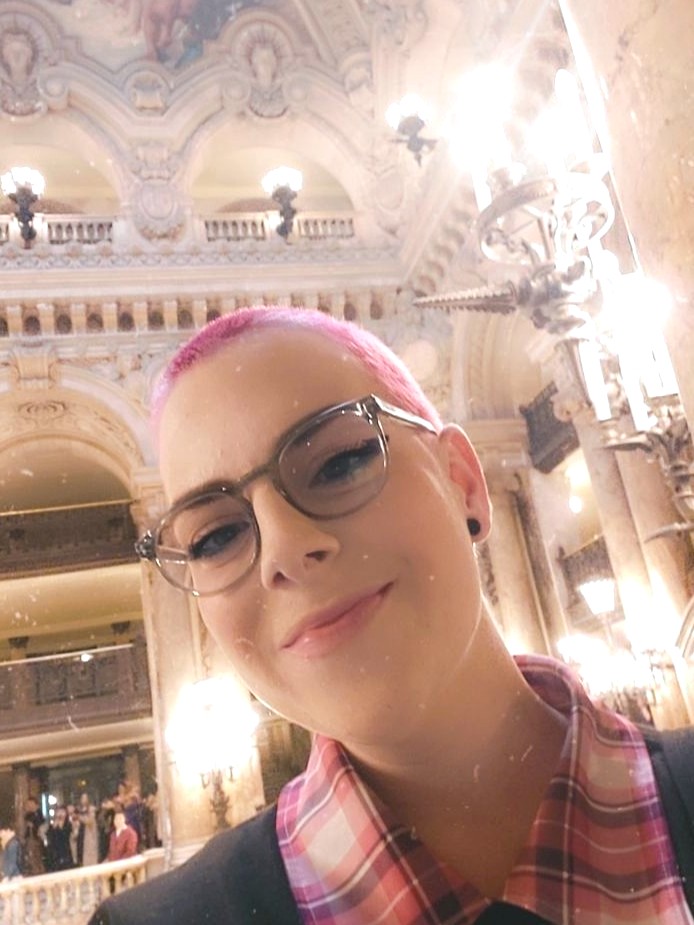
“Do you really want to travel somewhere, but you don’t know who to go with? Then just go alone! Solo travel is liberating and lets you discover what you really want. For me it started small: a day in Amsterdam or a visit to a museum on my own. Step by step I gained more self-confidence.
One of my New Year’s resolutions for 2024 was that I wanted to go to Paris. The planning didn’t work out well and eventually I took the step to go alone. I found that very exciting, but I noticed that I can trust myself well. I made a solo trip abroad by train, visited all kinds of museums and discovered many tourist attractions. In the picture you see me in the Paris Opera House, Palais Garnier.
The trip to Paris gave me confidence in myself and I learned to be less dependent on others. I enjoyed solo travel so much that I also traveled to Florence by myself this fall. I stayed in a hostel there for the first time. Which was a little scary, but it led to all kinds of new friendships. Going solo gives me energy and my advice to others is: just dare to do it!”
Isabelle Lehnberg (22) is Communication student and was featured in the WIN section ‘Outfits’ with her outfit.
Erik: Birds
“Being outside, observing and counting birds, that gives me energy. I live in the centre of Deventer, when I cycle over the IJssel bridge I can stand with my feet in the floodplains, areas of land adjacent to a river, or in the forest within five minutes. The moment I start counting birds my senses are activated and everyday life ‘turns off’. You are no longer busy with work or family. Nature takes me out of my head and the stress out of my body.
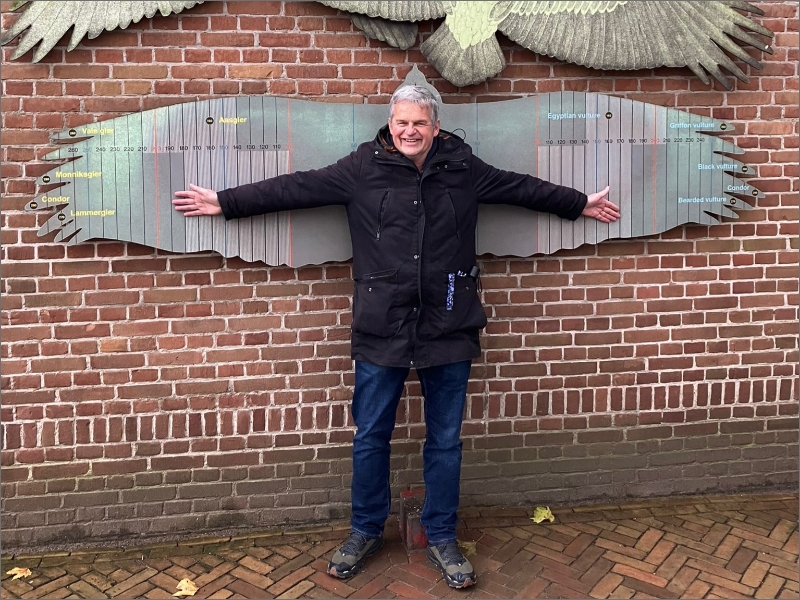
Along the IJssel you can find all kinds of geese. Special birds that I have seen there are for example the American wigeon, the red-breasted merganser and the common scoter. The latter two only occur at the coast, but sometimes they blow inland with a storm.
I also give excursions, from the Bird Protection Society. I then go with small groups on foot or by bike into the area along the IJssel between Deventer and Zutphen. That is very nice to do, I think it is wonderful to amaze people about birds.”
Erik Mensonides is lecturer at the Architecture and Construction Engineering study programme
Erik: The Pieterpad
“In my spare time I get most of my energy from contact with friends, family, running and walking.
Walking varies from shorter weekend walks to the long-distance hiking trails in the Netherlands. When we lived in Arnhem we walked ‘a walk around the Veluwe’. This is the longest forest walk in the Netherlands, a beautiful route. The route runs from Arnhem to Wageningen, through to Nunspeet, then towards Hattem and along the west side of Apeldoorn back to Arnhem. In total about 280 kilometers.
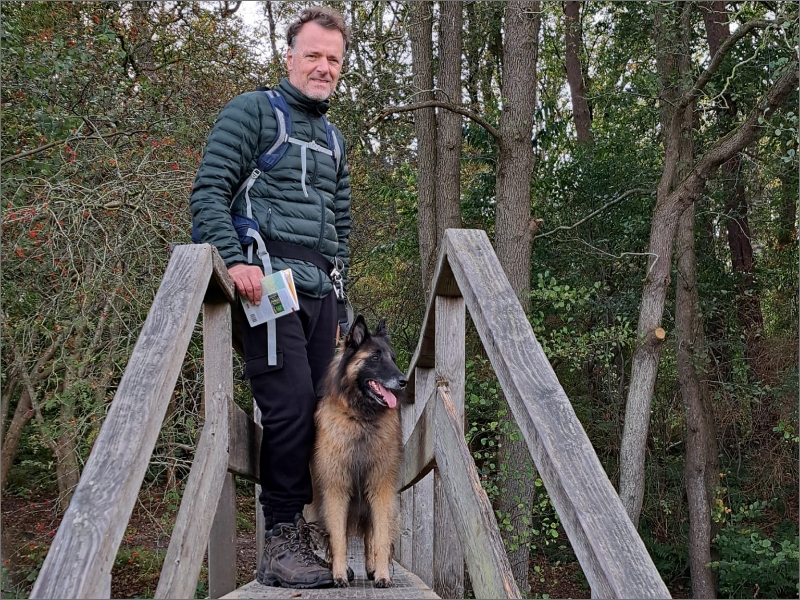
Since my partner Paul and I live in Wolvega, we have a dog. Now the distances are a bit shorter. A maximum of fifteen kilometers a day, several days in a row. For example, we walked the ‘Jabikspaad’ (130 kilometers). And in August we started the ‘Pieterpad’: from Pieterburen in the north of the Netherlands down to the Pietersberg near Maastricht in the south. We are in Coevorden now, so we can go on for a while.
In preparation for the ‘4Days Marches’ of Nijmegen, I also walk alone, distances varying from twenty-five to fifty kilometers. For example, in 2023 I walked the ‘Stellingenpad’ (265 km), in the region where we now live. What strikes me every time is how beautiful the Netherlands is. And that you can still walk long distances without running into anyone, enjoying the landscape and nature. We enjoy it every time!”
Erik de Boer is lecturer at the Finance and Control study programme
Lin: Singing
“Yes, I too can sometimes get into a negative groove and the best way to get out of it is to sing. I have been doing that a lot since I was a child, alone, but especially together. I really enjoy producing those beautiful sounds together, working together so that it becomes more beautiful and then performing together to share it with an audience. That also gives you a lot of energy back. I mainly sing classically in various chamber choirs; I went to the conservatory so the techniques are familiar to me, but singing is also training; on average I spend twenty hours a week on the art of singing.
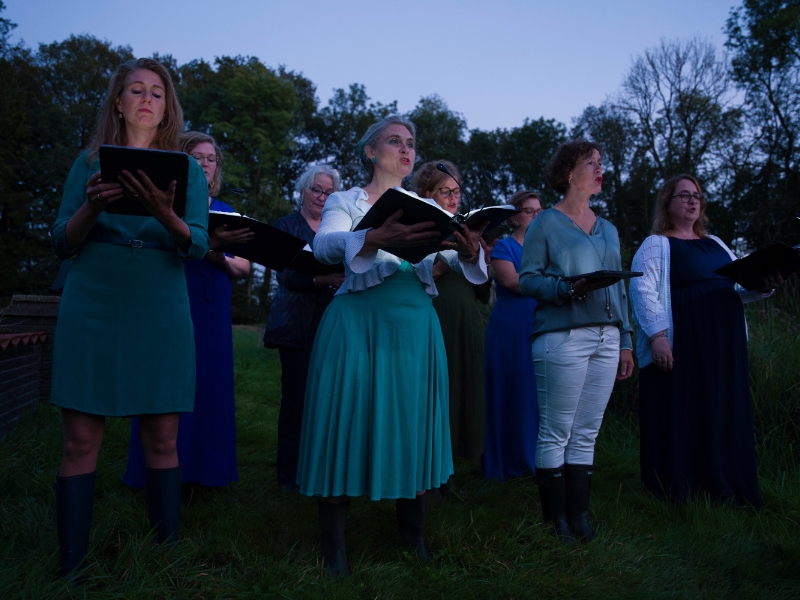
Originally humans are singing beings because singing helps us express how we feel much deeper than language. So both the mental connection is very cool, but also the physical activity. You are very consciously working on your breathing so singing is by definition beneficial for your body plus making sounds is also a beneficial process. Singing helps your physical, cognitive and emotional well-being, but it also helps to stimulate your imagination and therefore it helps to stay positive and keep yourself on track.
Lin de Jong is art lecturer at the Education in Primary Schools study programme.
Joost: Running
“Since I started studying abroad in Paris for my minor, I have to work really hard at school. Very long days from eight in the morning until eight at night at school are no exception. To survive these dark winter days, I found a hobby. One that I didn’t expect to get energy from, namely: running. Without any plan.
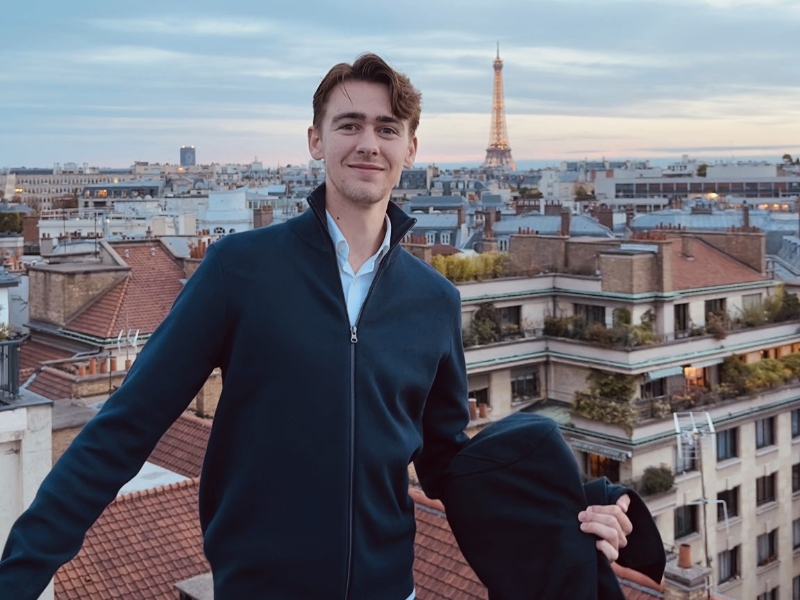
Three times a week, early in the morning, on an empty stomach, I sprint out of my apartment in the 18th arrondissement and follow my nose. Don’t worry, not like Jean-Baptiste Grenouille in ‘Das Parfum’ (who crisscrossed the city in search of scent until he completely lost his way). Sometimes I run along the trendy Canal Saint-Martin, and other times I dare to climb Montmartre.
When I finally reach the top after 237 steps, the smell of fresh croissants greets me. I rush to the first terrace, where I ‘bonjour-myself-down’ (don’t say this in France). Time for a café crème in the morning sun with a view of the Sacré-Coeur. Also called La joie de vivre, or: the better life!”
Joost Poppema, 3rd year Journalism student, studies in Paris for six months and blogs about his experiences on the WIN website.
Inge: Cooking
“During the week I cook simple meals, but on weekends I cook twice, elaborately. Friends sometimes say: “Come and eat at our place!” but I don’t have to take turns. Then I say: “No, just come and eat with us, I like that, it’s my hobby.” Immersing yourself in a dish. What does one book say, what does another? What can you leave out or replace? In September I received the same cookbook from three people, by Ottolenghi. That was a bit too much, those recipes are quite complicated, but I enjoy browsing through them. I use it as a source of inspiration. The puzzling… You should know, I started at vocational education in catering.”
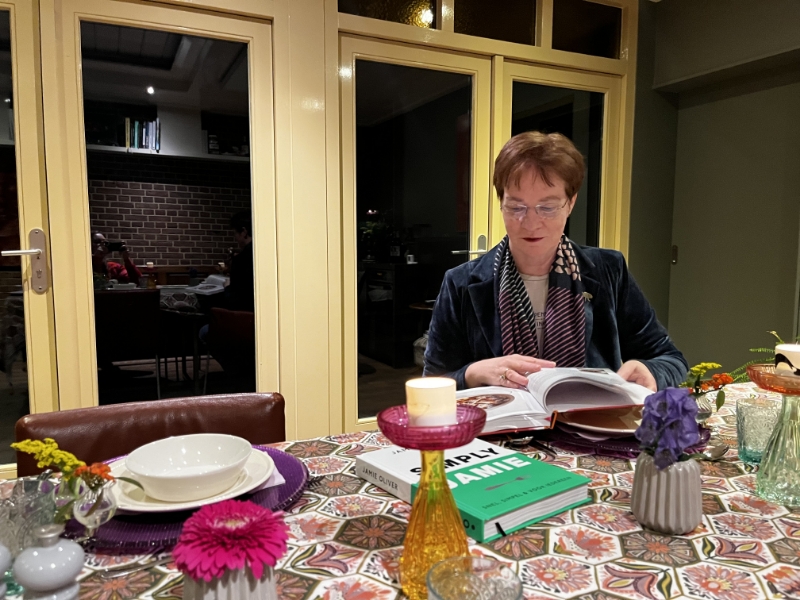
“What do I like to cook most? In any case, four or five courses, but especially the thinking and setting the table nicely and the preparations or; ‘the mise en place’. I find vegetarian quite a challenge, and my future son-in-law has a serious nut allergy, that is also a bit of a switch.”
“It’s a challenge, it’s creative and when the end result looks good, I’m really happy. That mix gives me energy. What if it fails? That doesn’t really bother me and that doesn’t happen often. When something really becomes a challenge, I always have a plan B, but of course the best stories arise when it fails. I do try dishes in advance, before I cook them for guests. That’s a bit more relaxing.”
“No, I don’t want to impress anyone with my meals. My guests have to have fun! And it’s nice when you go somewhere and you see a beautifully laid table… you see, I also go to people’s houses, things are different there, there placemats are put on the table, the plate on top. I think that’s fine. That’s nice too!”
Inge Grimm is Chairwoman of the Executive Board
Sylvia: In my DNA
“I think it’s innate. As long as I can remember, I’ve been positive, I’ve always been enthusiastic. I don’t have to do anything for it. My sister has the same. We got that from our parents. They experienced the war as teenagers; a traumatic experience. Once you’ve gotten through that, everything else in life seems lighter afterwards.”
“Others consciously seek it out, I can imagine that. But for me, enthusiasm is a kind of basic attitude. I like having people around me who are the same way. At the same time, I think it’s important to help people who are having a hard time. Helping makes you happy.”
“What I also think is important is humor and putting things into perspective. That you don’t take yourself too seriously. Do you know the saying ‘Life is no joke, there is a lot of sadness, but it’s usually not as difficult as we make it’? I think that’s a beautiful piece of wisdom. That’s why I’m a big fan of ‘Omdenken’. This is a way of thinking and acting that turns a problem into an opportunity. You often see it around you… ‘Oh dear, the project deadline is approaching, we have to move the deadline…’. My first reaction is: what does it take to meet the deadline? I also like to give compliments. Nothing is as valuable as a smile on someone’s face. You get positivity back if you radiate it yourself. Try it, it will enrich your life.”
Sylvia Kommers is communication advisor at Windesheim Flevoland
Daniël: Nature
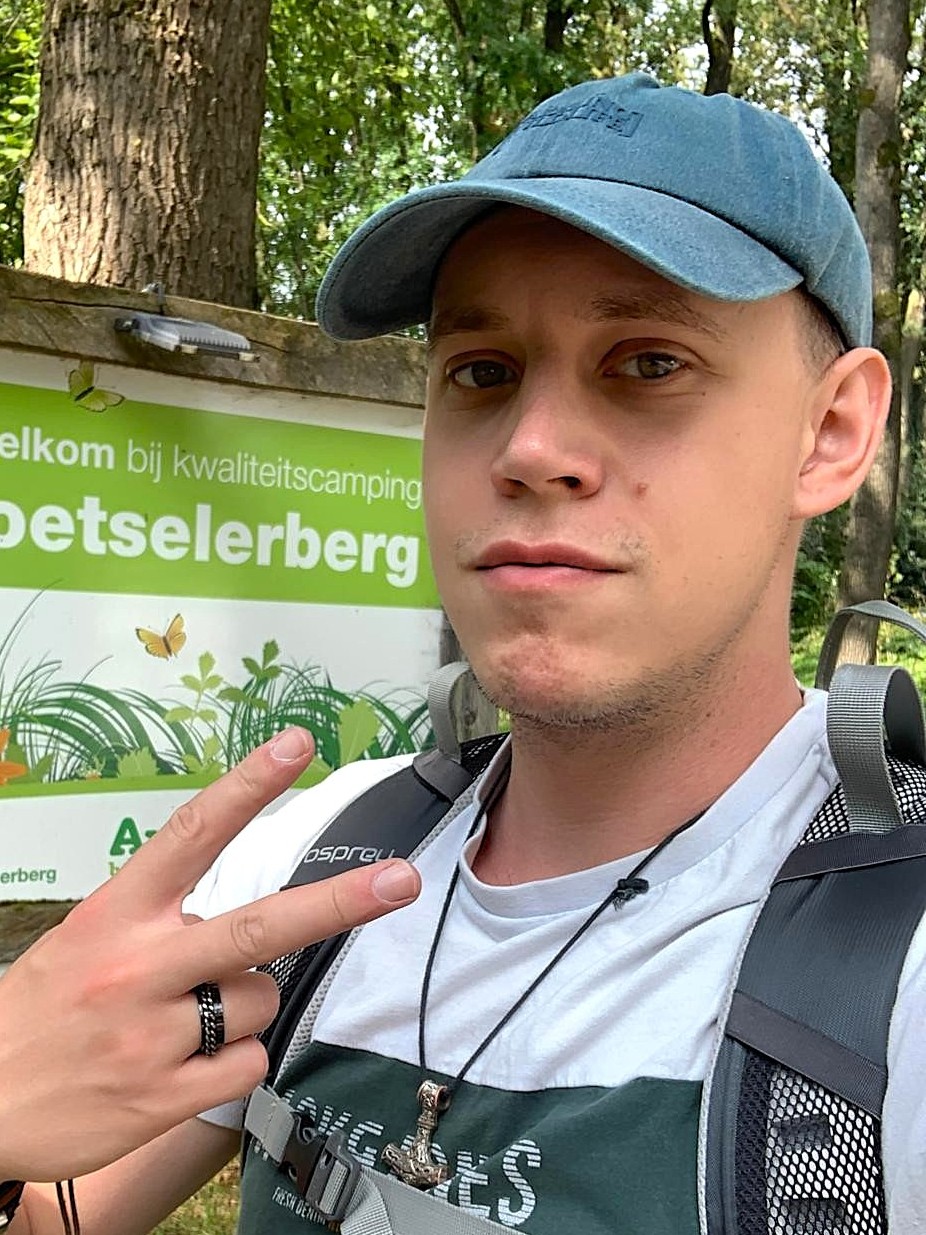
“I get a lot of energy from getting out into nature. For me, nature has a tremendous healing effect, which allows me to really get away from all the hustle and bustle. On school days, I sometimes take a half-hour break to cycle through the park called Engelse Werk in Zwolle, which is practically next to the school.
In our research into mental health, we are also increasingly discovering how important it is to get away from all the rush for a moment. When I have more time, I also put on my walking shoes and go into the wilderness for a few days, such as a section of the ‘Pieterpad’, or across the Oostvaardersplassen or the Veluwe.”
Daniël Ekeler (25), Communication student, is one of the driving forces behind the Comfort Zone, a ‘living room’ on campus where students can relax and chill.
Community police officer Melissa: Listen and encourage
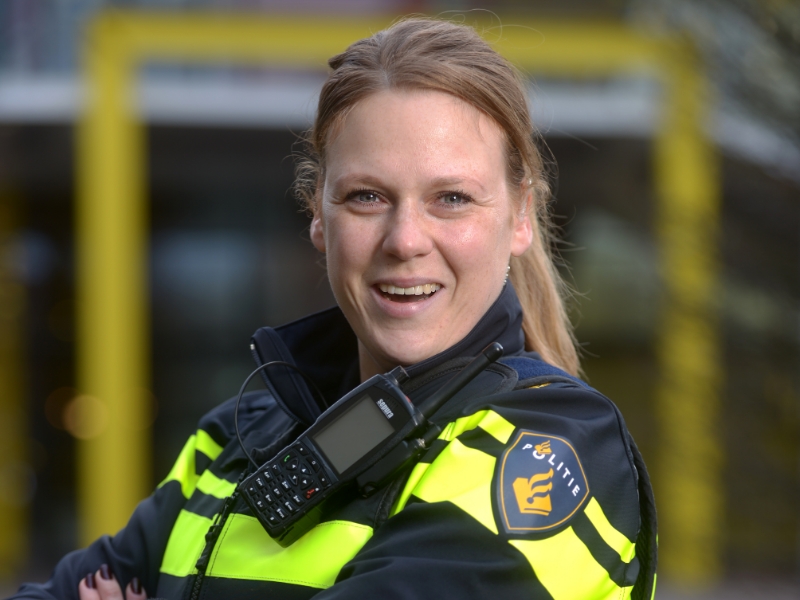
“During my round through the neighborhood I saw a young mother walking down the street. I know her from a long-running divorce and domestic violence issues. The last time I saw her – about a year ago – she had dark circles under her eyes, was constantly alert and carried an AWARE button. Her ex was making her life incredibly difficult and I remember sticking my neck out for both of them: she gratefully accepted all help, while he had broken off all contact with authorities. In a short time I had intensive contact with her to start the assistance and make safety arrangements. Suddenly you are in the middle of someone’s life, you speak to family and friends and you are part of someone’s familiar environment. As I passed her in the car, our eyes met and she immediately started waving enthusiastically at me. I parked the car, got out, greeted her and she immediately started talking non-stop. She told me that she is doing well now: that she is working again, has found love again and that she is making plans for the future. And that made me feel incredibly good. She also told me how grateful she is to me and the other care providers for everything we have done for her.
A few days later I spoke to a care provider from my collaboration network. She told me that the ex-husband also came to them with a request for help, because he wanted to put things in order.
The effort you have to put in sometimes took a lot of energy back then, but it now gives me a lot of satisfaction. In a time when some people see the future as bleak, it is important to have genuine attention for each other. This does not always require authorities, we can all do that. As a community police officer, I am often involved in situations where people can no longer see the forest for the trees. And with an optimistic view I try to encourage them. No, I cannot solve all problems, but I can ensure that people feel seen and heard. If we all look and listen a little better, we can make the world around us a better place, bit by bit.”
In addition to her Social Work studies, Melissa is a community officer at the Police; East-Netherlands
illustrations: Judy Ballast
photo Melissa: Jasper van Overbeek
